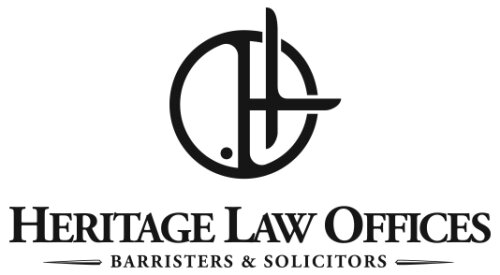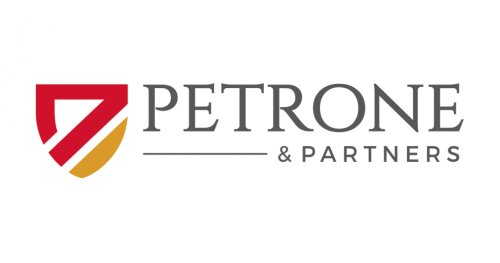Best Communications & Media Law Lawyers in Canada
Share your needs with us, get contacted by law firms.
Free. Takes 2 min.
Or refine your search by selecting a city:
List of the best lawyers in Canada
About Communications & Media Law in Canada
Communications & Media Law in Canada encompasses a wide range of legal issues related to broadcasting, telecommunications, internet regulations, privacy, and freedom of expression. This legal field is governed by federal, provincial, and territorial laws and is significantly shaped by Canada's commitment to upholding constitutional rights such as freedom of expression under the Canadian Charter of Rights and Freedoms. The legal framework is designed to regulate how information is disseminated through various media channels, ensuring a balance between free expression and protecting the rights and privacy of individuals.
Why You May Need a Lawyer
Seeking legal advice in Communications & Media Law might be necessary for several reasons. For instance, you may be a content creator or media business facing defamation claims or require assistance with copyright and intellectual property rights. Journalists or bloggers might need guidance navigating issues related to freedom of the press. Businesses or individuals might encounter challenges with privacy laws or data protection when using digital platforms to communicate. Additionally, understanding compliance with Canada's complex regulatory framework for broadcasters and telecom providers often requires specialized legal expertise.
Local Laws Overview
Legal oversight in the realm of communications and media in Canada is largely under federal jurisdiction. Key aspects of these laws include:
- Broadcasting Act: Governs the broadcasting system in Canada, ensuring Canadian content is represented in media.
- Telecommunications Act: Regulates telecommunications services, aiming to ensure reliable and affordable services to Canadians.
- Personal Information Protection and Electronic Documents Act (PIPEDA): Governs how private sector organizations collect, use, and disclose personal information.
- Canada's Anti-Spam Legislation (CASL): Designed to protect Canadians from spam and online threats while ensuring that businesses have the tools they need to share information.
- Copyright Act: Offers protection of intellectual property, the rights of creators, and sets the framework for copyright law in Canada.
Frequently Asked Questions
What is the role of the Canadian Radio-television and Telecommunications Commission (CRTC)?
The CRTC is an independent public authority responsible for regulating and supervising Canadian broadcasting and telecommunications systems, ensuring they serve the needs of Canadian citizens.
How does copyright law affect content creators in Canada?
Copyright law grants creators exclusive rights to their works, including the right to reproduce, distribute, or perform the work, providing legal protection against unauthorized use.
What should I do if I receive a defamation notice?
If you receive a defamation notice, it is advisable to consult with a lawyer specializing in communications law to assess the notice and develop a potential defense strategy.
How does Canada's anti-spam legislation affect businesses?
CASL requires businesses to obtain consent before sending commercial electronic messages and outlines specific guidelines they must follow to remain compliant, with hefty penalties for non-compliance.
What privacy laws should businesses consider when handling customer data?
Businesses must comply with PIPEDA when collecting, using, or disclosing personal information in the course of commercial activities, ensuring proper safeguards and consent mechanisms are in place.
Are internet Service Providers (ISPs) regulated in Canada?
Yes, ISPs are regulated under the Telecommunications Act, and they must adhere to the CRTC's policies, which promote competition and service quality while protecting consumer interests.
Can I use social media in my advertising without legal concerns?
While social media can be a powerful advertising tool, businesses must ensure compliance with advertising standards, intellectual property laws, and user privacy regulations, potentially needing legal guidance.
How are broadcasting licenses obtained in Canada?
Broadcasting licenses are regulated and granted by the CRTC, and obtaining one requires adhering to specific criteria and demonstrating a commitment to Canadian content and cultural development.
What are the legal implications of freedom of expression for media and journalists?
While freedom of expression is protected, it carries responsibilities, including respecting others' rights, being aware of defamation laws, and balancing public interest against privacy considerations.
How can I protect my digital content in Canada?
To protect digital content, creators should register their works with the Canadian Intellectual Property Office, use digital rights management tools, and stay informed about evolving digital copyright challenges.
Additional Resources
Consider reaching out to the following resources for additional information and assistance:
- Canadian Radio-television and Telecommunications Commission (CRTC)
- Digital Media at Communications Canada
- Office of the Privacy Commissioner of Canada
- Canadian Intellectual Property Office (CIPO)
- Canadian Media Lawyers Association (CMLA)
Next Steps
If you require legal assistance in Communications & Media Law, consider taking the following steps:
- Identify the specific area of Communications & Media Law that your concern falls under.
- Research and contact legal firms or individual lawyers who specialize in your area of need.
- Prepare any relevant documents or information related to your matter for consultation.
- Schedule a consultation to discuss your legal issue and potential strategies for addressing it.
- Consider membership with professional organizations that can offer ongoing support and updates in communications law.
Lawzana helps you find the best lawyers and law firms in Canada through a curated and pre-screened list of qualified legal professionals. Our platform offers rankings and detailed profiles of attorneys and law firms, allowing you to compare based on practice areas, including Communications & Media Law, experience, and client feedback.
Each profile includes a description of the firm's areas of practice, client reviews, team members and partners, year of establishment, spoken languages, office locations, contact information, social media presence, and any published articles or resources. Most firms on our platform speak English and are experienced in both local and international legal matters.
Get a quote from top-rated law firms in Canada — quickly, securely, and without unnecessary hassle.
Disclaimer:
The information provided on this page is for general informational purposes only and does not constitute legal advice. While we strive to ensure the accuracy and relevance of the content, legal information may change over time, and interpretations of the law can vary. You should always consult with a qualified legal professional for advice specific to your situation.
We disclaim all liability for actions taken or not taken based on the content of this page. If you believe any information is incorrect or outdated, please contact us, and we will review and update it where appropriate.
Browse communications & media law law firms by city in Canada
Refine your search by selecting a city.














